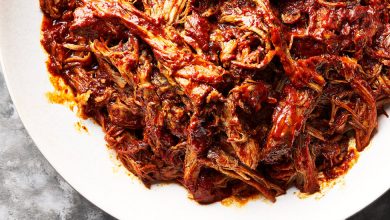The New Hospitality? Customers Can Sue Restaurants Over Pricing.

The Southern California restaurateur Kwini Reed has spent years tying herself — and her business model — in knots trying to meet the competing needs of her customers and her staff.
Sometimes it seems like everything from state law to inflation is conspiring to force her to charge $35 for a hamburger, which Ms. Reed says she won’t do, even if it means she and her husband, the chef Michael Reed, take a financial hit.
The only fee at their Los Angeles restaurant, Poppy and Rose, is a 20 percent automatic gratuity for large parties, which helps ensure her servers are fairly compensated for tables that demand more skill and time. Now, a new state law in California, which goes into effect July 1, makes those charges illegal. If Ms. Reed continues the practice, a customer could sue her.
“It’s a slap in the face for business owners in California,” Ms. Reed said. “We have so many other ways we can be sued for no reason. We don’t need another lawsuit that is just going to incur more fees, which could put someone on a path of closing. As a human being, why would you do that?”
The law, Senate Bill 478, is aimed at fees tacked onto a bill beyond the listed prices, whether a resort fee at a hotel or a service charge that inflates the cost of a concert ticket. The law also bans restaurant service fees, which small restaurateurs across the country say they’ve come to rely on in a historically challenging market, but which many consumers say they find bewildering and unfair.
Since the pandemic, small restaurant owners in California have faced the same array of disruptions as restaurateurs nationwide: a challenging labor market, rising inflation and the attendant consumer skepticism about higher menu prices. Many small restaurateurs are seeing more dollars go out the door than come in, while restaurant goers expect more than ever as dining out becomes a pricier occasion. Now the service fee, already the subject of Yelp complaints and Reddit diatribes, could spark legal conflict between a business and a patron.




